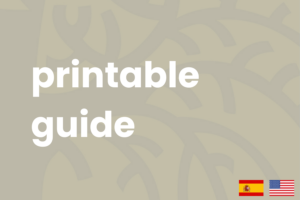Guardianship
As a child reaches legal age (18 in most US states) their primary caregivers no longer have full authority over medical or other decisions. This is true whether or not the adult child is capable of making those decisions. No longer having authority over your adult-child’s care may feel rude and shocking. Continuing to advocate for access to high-quality, developmentally appropriate services takes careful advance planning, generally beginning in mid-adolescence.

Your Team:
A lawyer.
A member of the clergy who is responsible for the religious needs of an organization and/or its constituents.
A professional who can help families manage their financial affairs and work towards their long-term financial goals.
A specialist whose aim is to improve the quality of life of their patients over the course of their illness regardless of stage, by relieving pain and other symptoms of that illness.
A mental health professional who uses therapy and other strategies to support coping and adjustment and treat concerns regarding social, emotional, or behavioral functioning.
A trained professional who works with people, groups and communities to help them better their lives.
An individual who leads and/or guides individuals or groups coping with life experience and challenges.
An attorney can assist with navigating legal concerns around guardianship and advise you on whether to involve a financial planner. A psychologist, social worker, chaplain, and/or spiritual leader can provide a space to talk about emotional and logistical concerns. Palliative care clinicians are also a good resource for guidance.
Guardianship is a continuation of what has already been established over the years as you’ve cared for your child: that you are in the best position to understand, interpret and clearly state your adult child’s needs. Guardianship allows you to make medical decisions for your child and assure uninterrupted access to appropriate medical care and support. Planning for guardianship should begin when your child is in their mid-teens, and preparation to file for guardianship should ideally take place in the year before they reach adulthood (18 in most states).
The court process is in place to protect adults with significant needs. Nevertheless, it can feel invasive, inconsiderate and unjust. Your role as guardian comes with new responsibilities that may feel burdensome. Guardians are accountable to the courts and are required to file paperwork and to report on any concerns they have. These new expectations may frustrate you as you come to understand that you are not the only one now involved in your child’s care. The challenges and losses will take time to navigate. You may experience grief or anger.
And you, too, are aging. If you are reaching retirement age you may have financial concerns. You may also feel sad or angry as you see your peers experiencing the freedom of having an empty nest. And if they are living, your parents—your child’s grandparents—are also aging. They may be less able to offer support and may need help themselves.
You may be facing your own health concerns and have questions about whether you can physically care for your child. Family dynamics and individual capabilities may raise questions about who will be the most appropriate legal guardian(s): one or both parents, a sibling, another adult, or some combination? For example, if your own health or some other concern makes you feel unable to take on the guardian role, another family member may be the best option. Or, you may have to appoint a legal guardian outside of the family circle. The prospect of giving over control may make you feel anxious and vulnerable, perhaps guilty.
All of these concerns may prompt questions of how to increase in-home support, and/or whether it would be beneficial to consider out-of-home placement or programs for your adult-child. The CPN guide “Considerations for Guardianship & Medical Decision-Making” is a helpful resource for thinking through and planning for your options.
– June, parent of Katie



